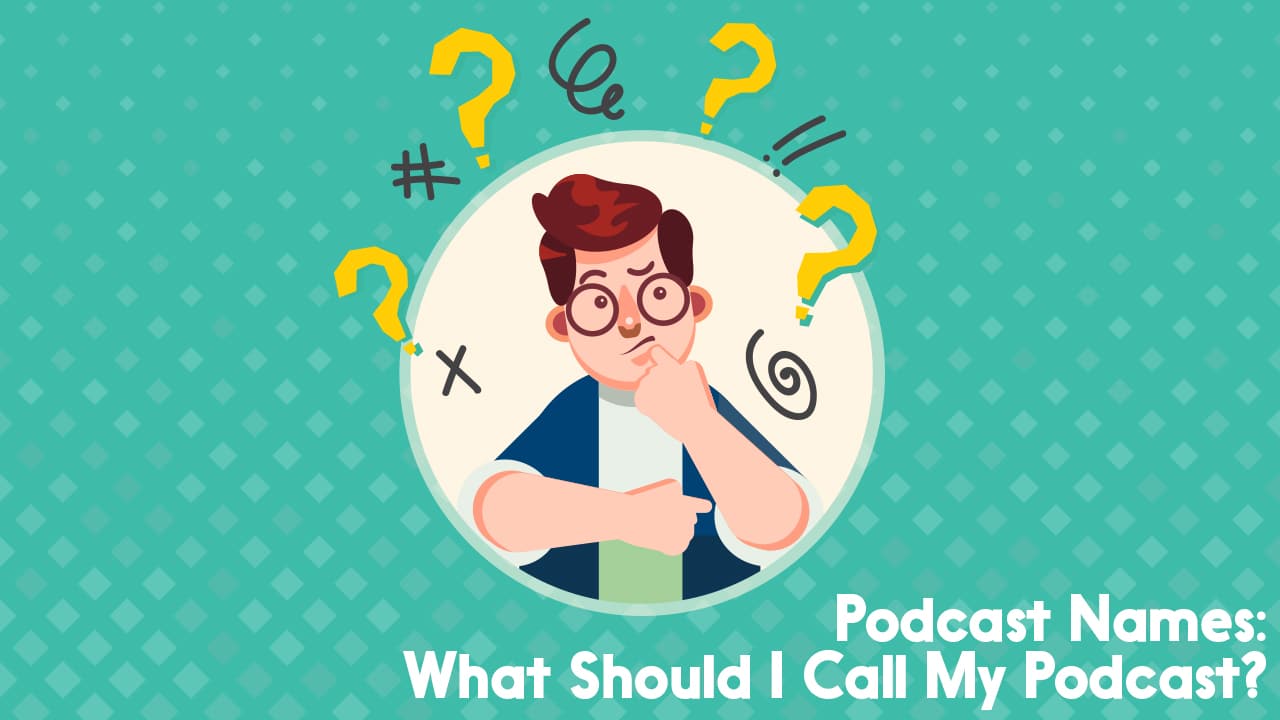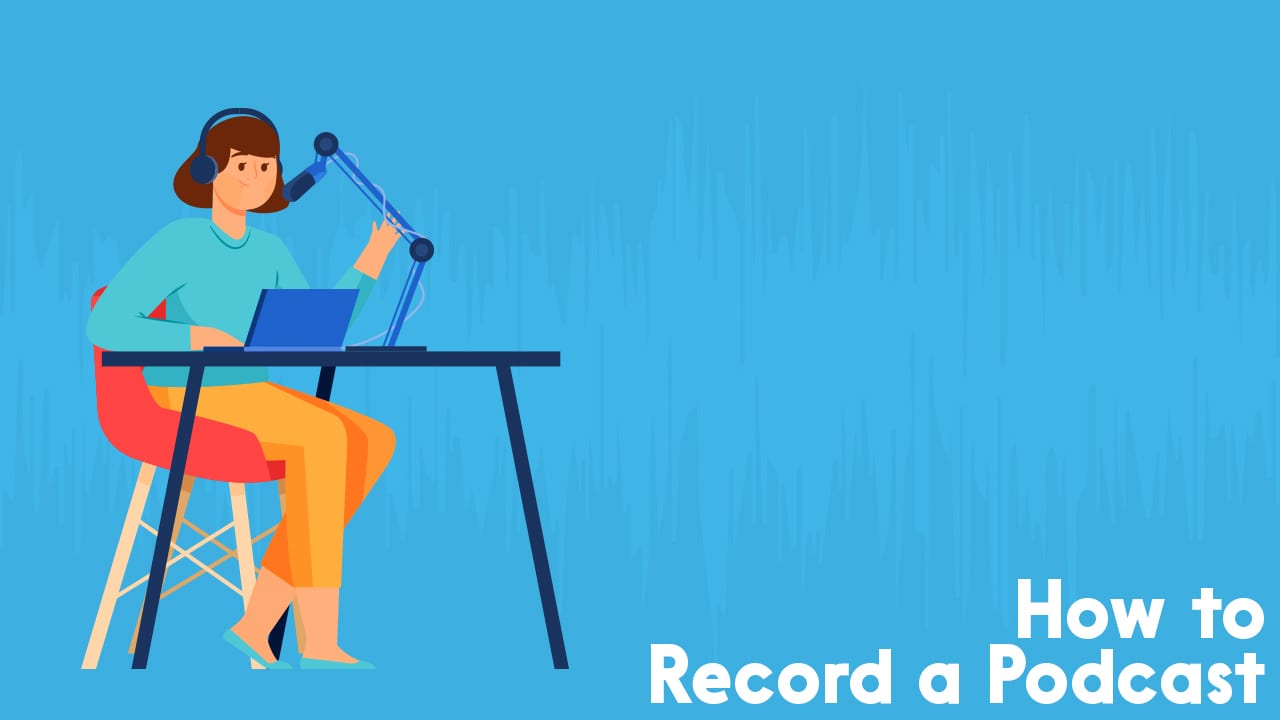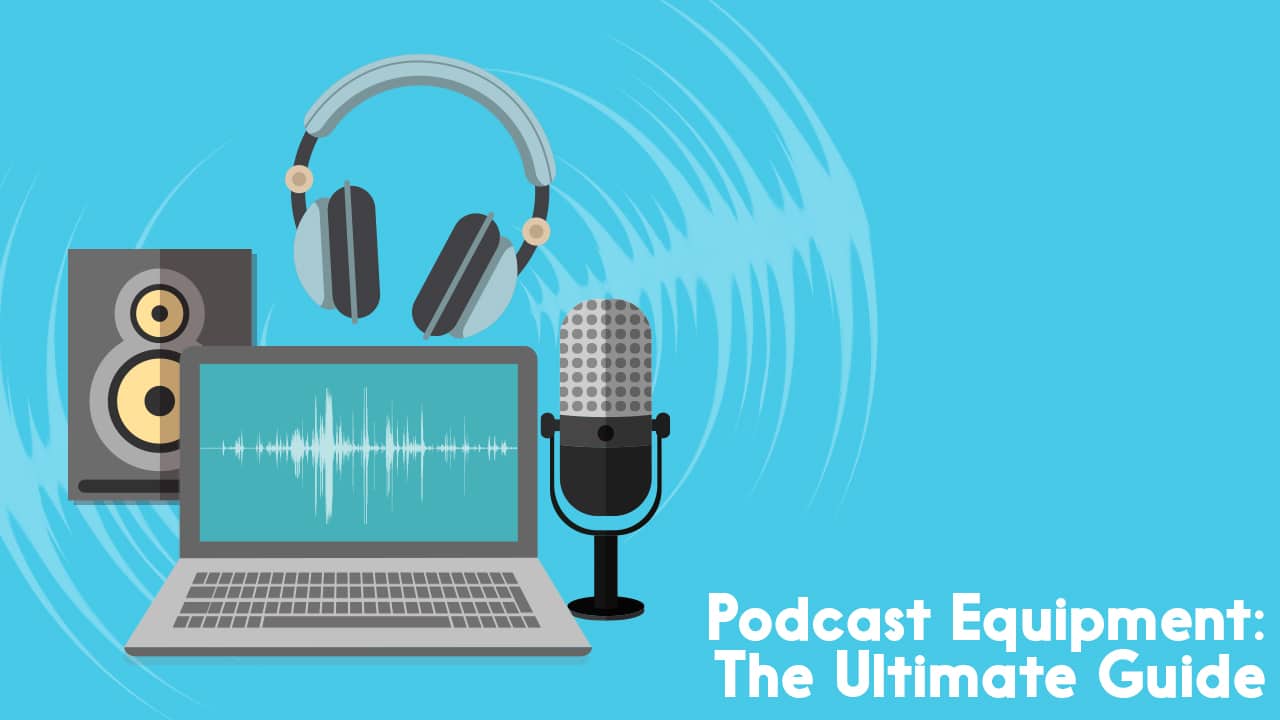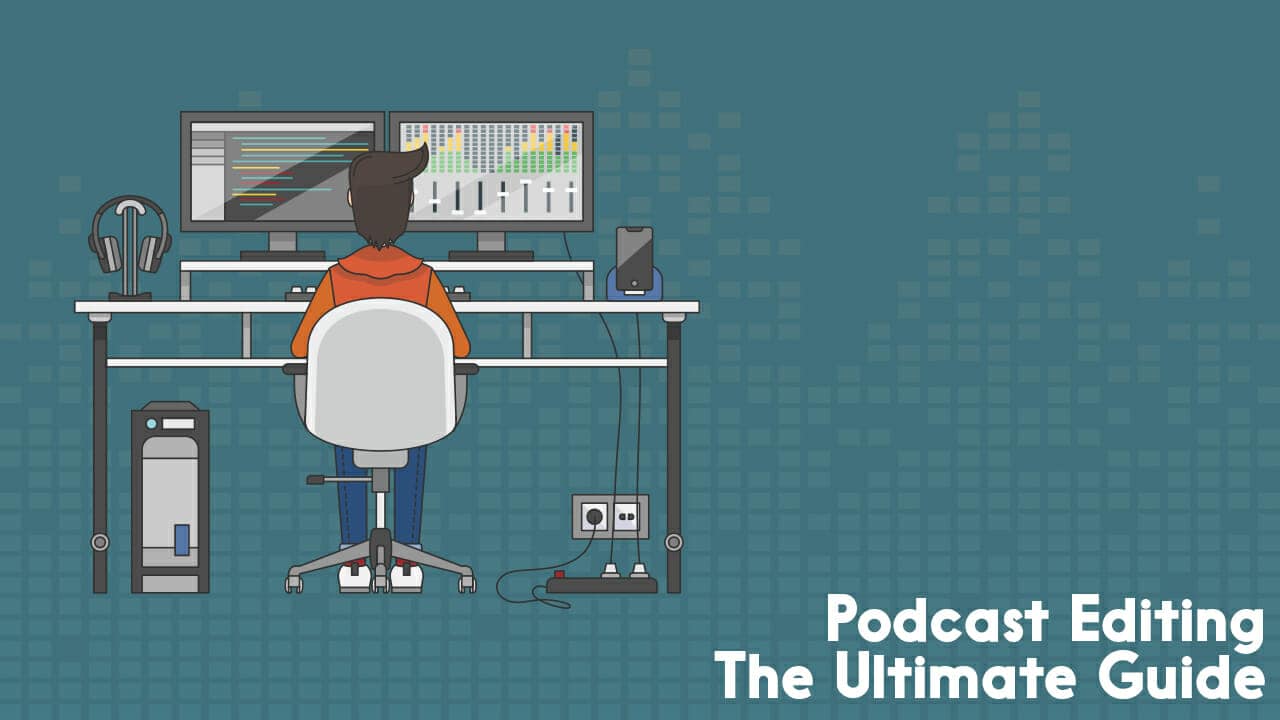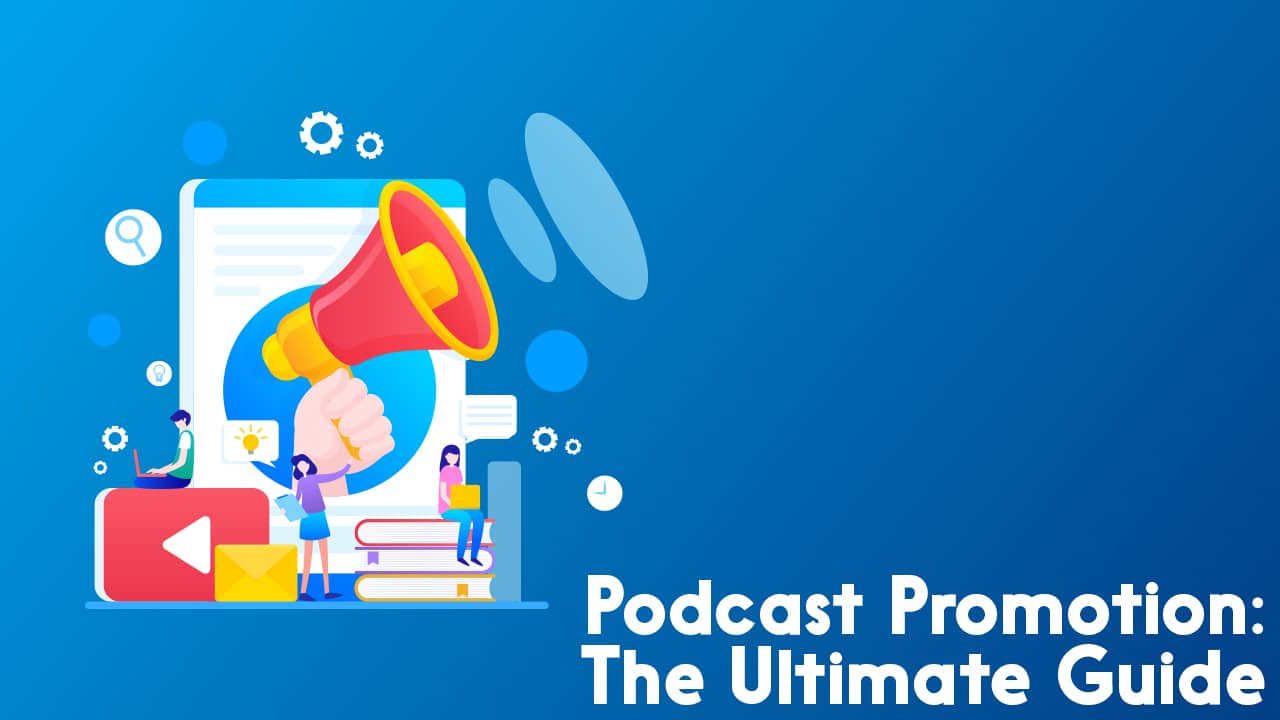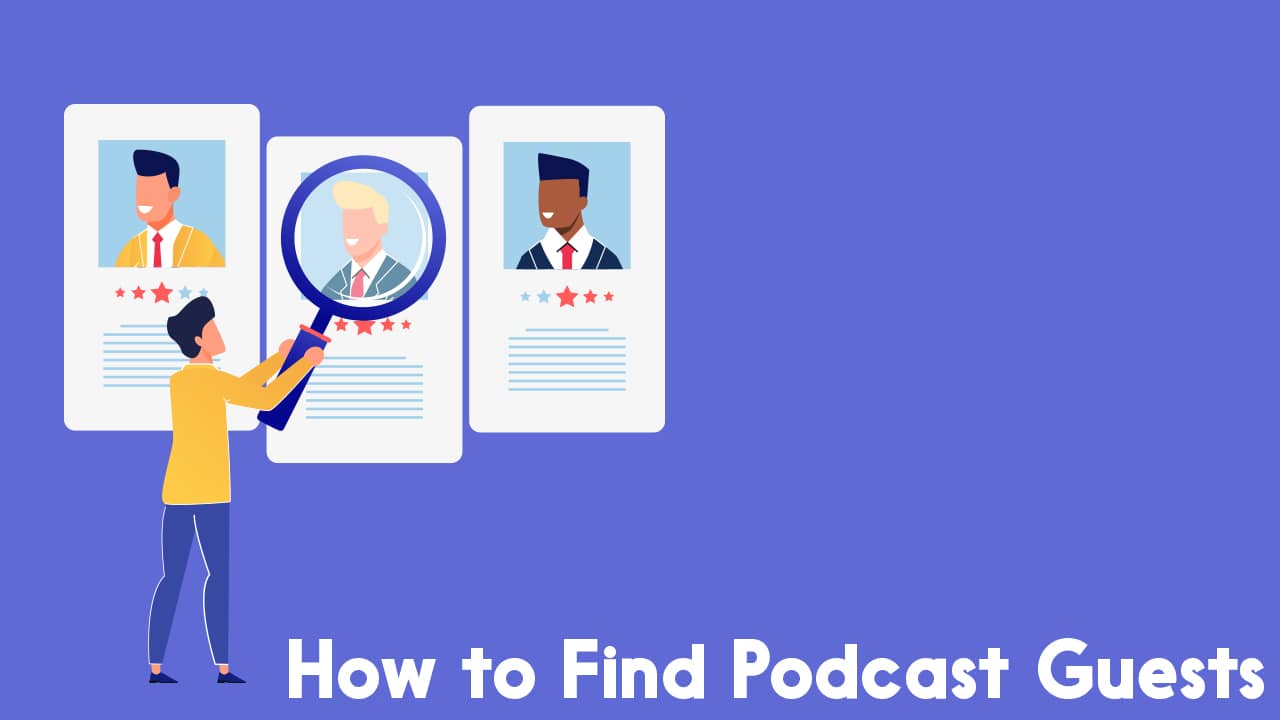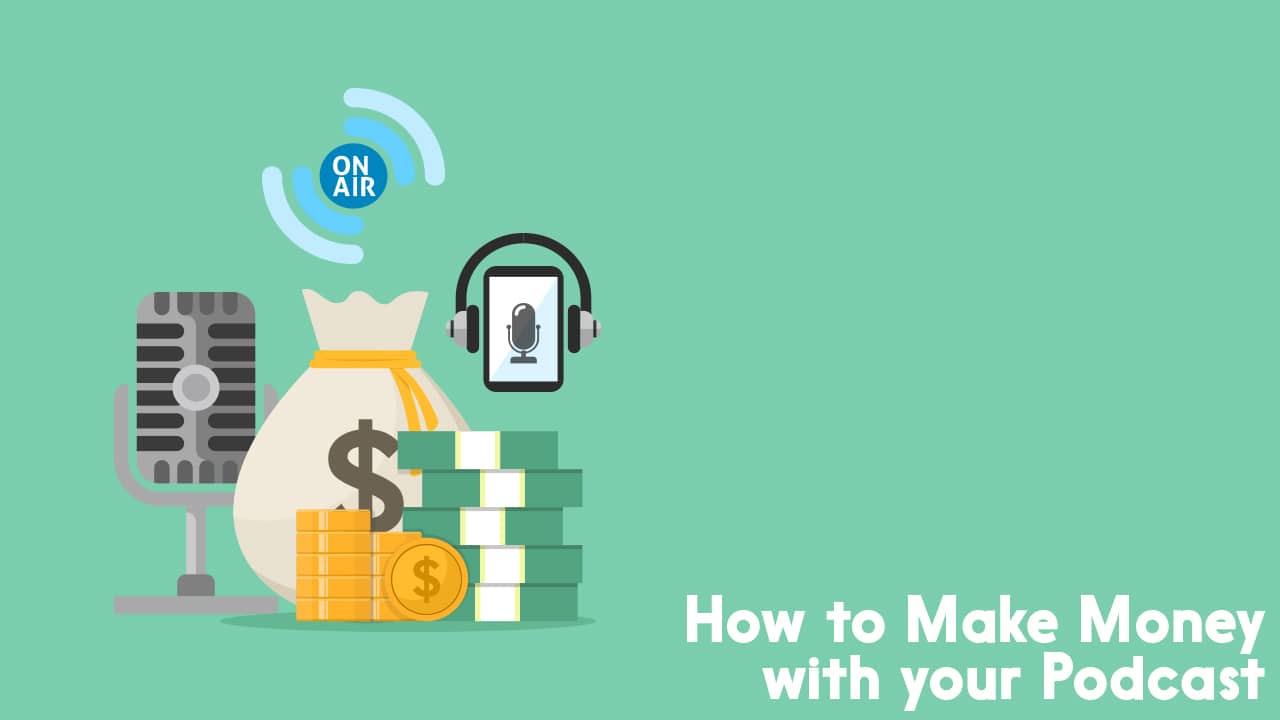12 Podcast Barriers Facing New Creators (& How to Overcome Them!)
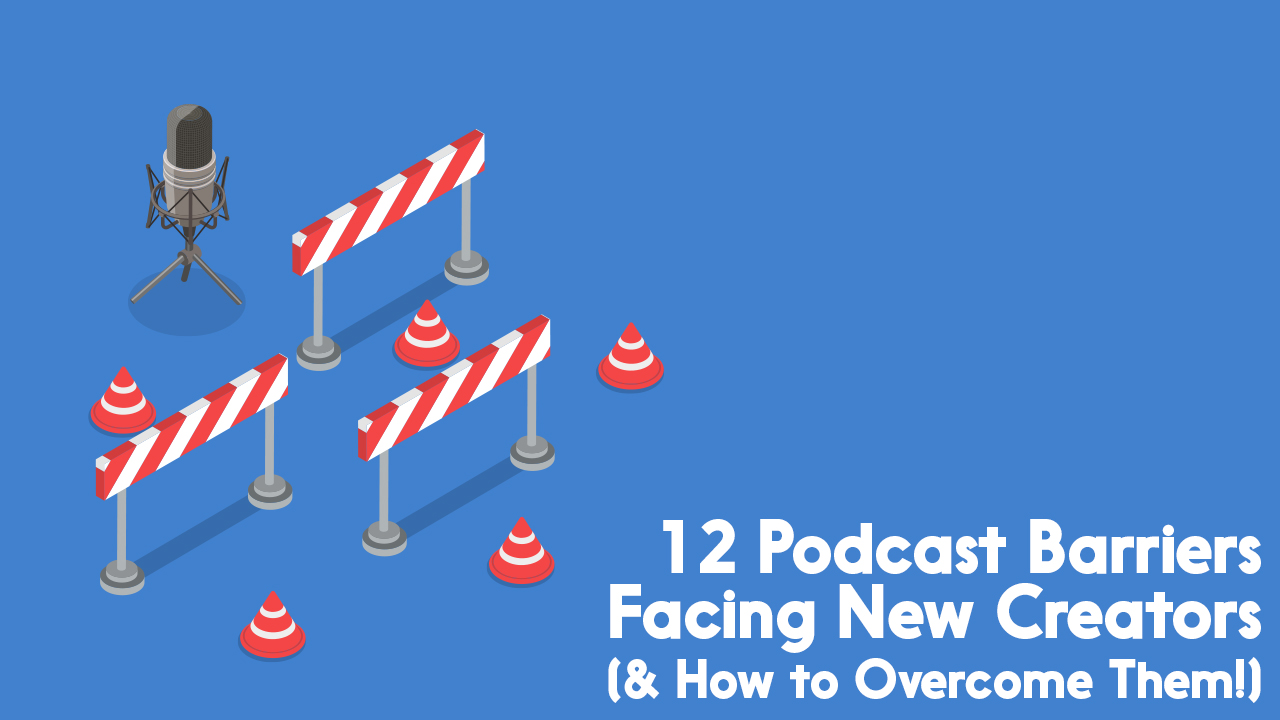
There are many podcast barriers facing new creators in the medium. How do they stay motivated? Where can interview-based podcast hosts find good guests? What can help a podcaster grow its audience? All these questions have answers. In this article, I’ll cover ten major pitfalls that podcasters face – with suggestions on how to overcome them!

Jared Easley
Jared Easley is the Co-founder and VP of Content and Community for Podcast Movement. He is the co-host of the Starve the Doubts podcast. He is also the author of two books. The most recent is Stop Chasing Influencers. He and his wife and daughter reside in South Florida.
1. Self Confidence
Believe it or not, it takes a lot of courage to be creative and share your voice with the world. Not everyone is confident in their abilities, and this self-doubt can lead to procrastination. This can be a big podcast barrier.
It’s easy when you’re first starting as a podcaster to question whether or not what you have to say is worth hearing. Be assured that it is! Every person has something valuable to share with the world; be sure to make your podcast reflect YOU and YOUR voice.
The best way I found for handling self-confidence was to make time each day and dedicate it to complex tasks oftentimes delayed because of self-doubt. It is a process that started with taking on small challenges, which slowly gave me a sense of confidence.
2. Who to Trust
One of the biggest podcast barriers is figuring out who you can trust for sound advice on getting started, what equipment to buy, and more. How do you know what advice will be helpful? Do I have to spend a lot of money to pay for expensive training to have a podcast?
The truth is, you don’t have to spend a ton of money or take “Podcasting 101” courses to be successful. Ideally, it would help if you had someone who can show you the ropes and give feedback on your work as it progresses to know what works for your audience and what doesn’t.
Many people get stuck here because they’re not sure how to find these types of mentors. It can feel overwhelming.
The Podcast Movement Facebook Group is one example of a great free resource for podcasters (over 65,000 members can’t be wrong). It’s a nice place to ask questions and get advice from fellow podcasters that have gone through similar struggles and want to help you.
You might also choose to bring on board a podcast coach or mentor to help you. These can vary from paid services to experienced podcasters willing to help you on a “skill exchange” basis.
3. Getting Started
Starting a podcast does require a commitment of both time and resources. Yes, you have economical options that are helpful, but it is not realistic to assume that launching a podcast will be easy.
Your podcast needs a topic. It should be a topic that interests you. Your episodes will require a format. You can listen to other podcasts that you enjoy to get ideas for the framework of how your episode will flow. Once you know these things, you are off to a great start.
My friend loves to surf. He & I were at the beach one time, and he was staring at the waves. I asked him why he wasn’t getting in the water yet. He explained that part of surfing is watching the waves to understand where they are. Podcasting is similar. You may not be speaking into a microphone or digital device yet, but putting together creative ideas and creating a plan is part of podcasting.
Here is The Podcast Host’s Ultimate Step-by-Step Guide on starting your own podcast.
4. Coming up with a Name for My Show
Perhaps the biggest podcast barrier of them all. The key to coming up with a name for your show, though, is not to overthink it.
You’re not naming your firstborn child.
In the end, it doesn’t matter what you call your show as long as it represents who and what you are on a personal level.
If you’re struggling to come up with a podcast name, try creating a list of words that define your show.
Examples: “art,” creativity,” spirituality,” “journaling.” Write down as many words as you can think of and see if anything jumps out at you in particular.
If you’re on the fence about which one to choose, ask yourself what word would best sum up who or what your podcast is all about?
Please do not spend too much time on this process; it’s okay to take an hour at most trying different ideas but don’t go overboard or get stuck obsessively thinking about it!
In my opinion, taking some action is better than stressing over getting the perfect name for a while without coming up with any results. You can always go with the “Insert your name” show! As you develop a creative name for your podcast, make sure you do not use one already in use (search Google and podcast directories to see if the name is available).
5. Pressing Record
Pressing the record button is similar to the self-confidence issue. It’s often a mental hurdle that people face when they are new to recording. Equipment does not matter. You have to be confident in yourself and have something that you want to say!
Some new creators overcome this podcast barrier by starting with shorter episodes so that there isn’t as much pressure at first. For example, start with just five-minute episodes for two weeks before increasing them to ten minutes overtime. That way, if things go wrong or don’t turn out well, then only 20 minutes of content is lost instead of 40+ minutes. Once you’re comfortable enough with being recorded (with less pressure), then feel free to increase episodes back to 30 minutes or whatever timeframe that fits your topic without unnecessary rambling.
You can also test a different format than the one you eventually want to do. Avoid interviewing a stranger and start by interviewing someone that you already know. Hit the record button. Please do it!
6. Staying Motivated
Launching a podcast does not guarantee success. The amount of effort it takes to create the show and then grow the audience can discourage some.
It’s essential to stay motivated by:
- Making a plan and sticking with it (research what you need, which equipment is appropriate for your budget, decide how often you will record)
- You are setting achievable goals that keep you moving forward every week/month, measuring the results of your hard work so far. Share them on social media or email an update newsletter to give yourself momentum!
- Sharing your work with a friend can also help. They will be more likely to hold you accountable for not getting started or meeting deadlines because they also want the show to be successful.
- Get honest feedback from people who are in your niche. They will be the best judges of whether you have a good show or not.
- Remember that it’s okay if things take time. Mistakes happen, but they are resolved with patience and practice!
7. Equipment
Choosing a microphone can be confusing. What type do I need? Do I also need a mixer? How much will it cost? Yes, some microphones are expensive, but you don’t necessarily need them to record high-quality audio.
- There are many affordable microphones available. Here is a list of them.
- If you don’t want to buy a mixer and microphone, software programs like GarageBand or Audacity are alternatives for mixing.
- You can create an entire podcast episode with a tablet or mobile device.
- What’s most important is the story and content of your podcast – the rest can come later!
8. Editing
A big podcast barrier for many. Audio editing is not my strength. I remember staying up all night to edit a thirty-minute podcast interview. I swore that I would never do this again. Podcast editing can be learned or outsourced. Editing software does not have to be a mystery. Tools such as Hindenburg, Alitu, and Adobe Audition are becoming more intuitive. They also have a lot of great tutorials available to help beginners.
If you decide to outsource podcast editing, I recommend determining a realistic price point for your budget. You can ask other podcasters if they have help to get referrals. Or, you can search for editors through sites such as Upwork and Fiverr. You can also find a local high school band and see if the drummer who also knows how to use Garage Band will edit your show. I’ve even heard of some podcasters asking their audience for volunteers. You have options.
9. Marketing
It’s not realistic to share helpful tips on marketing a podcast in a paragraph or two. I won’t even try. Here are some valuable resources instead:
- Podcast Growth: A Book About How to Grow Your Podcast Audience
- How Podcasters Can Use Large Publications to Grow Their Audience and Build Brand Credibility
- Grow your Audience: Insider Podcast Growth Hacks Used By Industry Experts presented by Ossa Collective
- Podcast Promotion: The Ultimate Guide
- Where to Advertise Your Podcast
10. Guest Hunting
Though it may seem like a podcast barrier, it’s not as difficult as it may seem to find high-quality guests for interviews.
Here are a few ways to find guests for your show.
- Authors: One of the best places to look for possible guests is on Amazon. Search for authors of recent books on the topic of your show. The goal for most authors is to increase visibility and hopefully sell more copies. Most authors are eager to do podcast interviews as this will allow them to gain promotion and publicity, which unfortunately does not always translate into sales. Still, it does provide a valuable asset in their book marketing campaign.
- Writers: One of the best places to find potential podcast guests is by reaching out to writers whose recent work relates to your subject. They are usually excited about getting more exposure for their articles, and an interview on a podcast can provide that opportunity. Resources such as Feedly and Google Alerts make it easy to find relevant stories from journalists you may not have known before.
- Fellow Content Creators: Who else is creating podcasts, blogs, or video content on a similar topic as your show? They are likely to want to share their work with your audience.
- Speakers: As a podcaster, you’ve likely attended an event with speakers on the same topic or niche. I find this invaluable when I do interviews on my show. I contact speakers before a public event and offer them the opportunity to be interviewed for my podcast after their presentation. You can also reach out to speakers at virtual conferences via tools such as Riverside.FM, Squadcast, Zoom, and Skype before the event to get permission for an interview after their presentation is over!
- Admins and Moderators: You might also consider reaching out to the admins of large online communities and in-person meetups. These guests are great because they may not only be willing to come on your show but may share their interviews with their own social media networks.
- Assistants: Instead of interviewing the person that declined or is unavailable to question, consider interviewing their administrative assistant.
11. Engagement
I started my podcast and found that getting listeners to engage with me was a tough challenge. One idea that worked was asking those who listen while they’re on their phone to send an email to “[email protected]” with the subject line “Listening.” I always reply in the same thread as soon as I can.
Here are some other suggestions for navigating this podcast barrier and soliciting engagement from your listeners:
- Ask listeners to take photos of themselves listening and send them in
- Record a voicemail message for your show. Speakpipe is an excellent plugin for WordPress websites that offers this option. Podinbox is a tool that allows podcast listeners to have a conversation with the podcast host.
- Have a giveaway with listener names on it (like “comment below” or “tag someone you know”)
12. Monetization
Making money on your podcast is not impossible, but it can seem that way initially. It requires diligence and patience. The lowest hanging fruit for podcast monetization is to consider affiliate sales and crowdfunding. Patreon is a popular crowdfunding option for content creators. You can also use the podcast to promote your current products or services if you already have them.
Here are the various ways you can go about monetizing a podcast.
What’s Your Podcast Barriers?
Podcasting has many benefits in building your brand and developing relationships with listeners, but it also comes with many challenges. The points above should be helpful for self-confidence, staying motivated, and marketing tips as you work to conquer those podcast barriers!
So what has been holding you back?
Podcast Movement: The World’s Largest Podcast Conference Returns
Every summer since 2014, Podcast Movement has gathered thousands of passionate podcasters and industry professionals from around the world under one roof to learn, grow professionally, and most importantly evolve and improve the podcast community.
In 2020, the landscape changed for everyone, and the event was held virtually. However, we’re excited to be planning on returning to a “new normal” in 2021, including getting back together in-person again in. PM 21 takes place in Nashville from August 3rd to 6th. Will we see you there?
